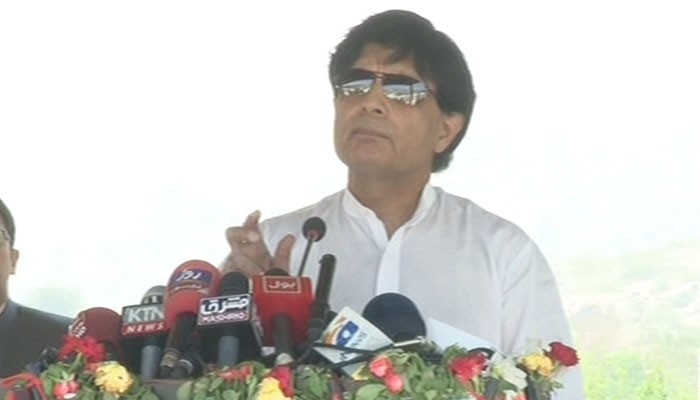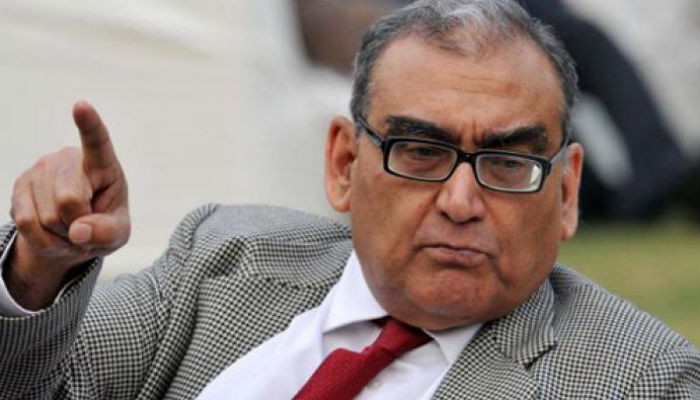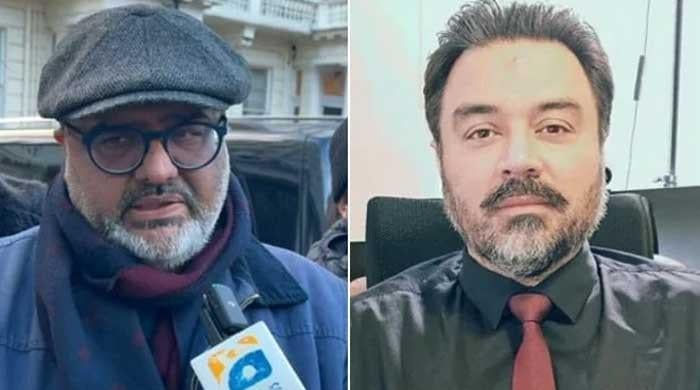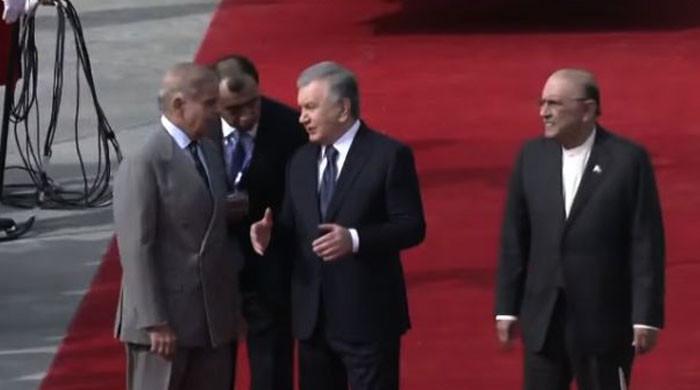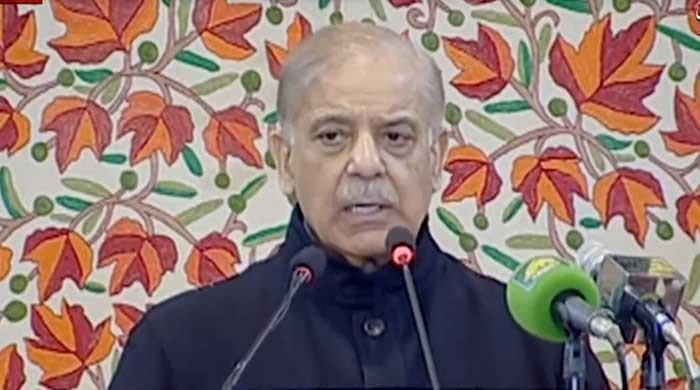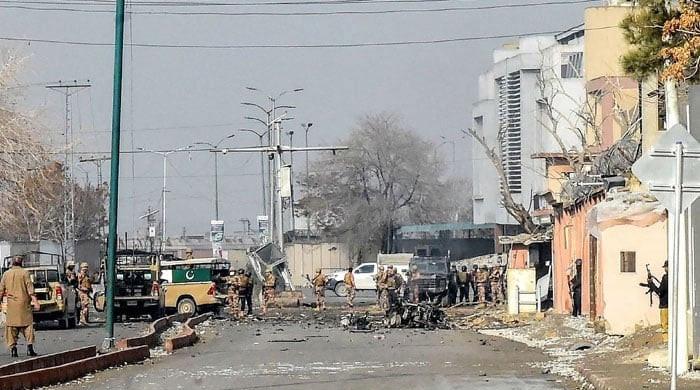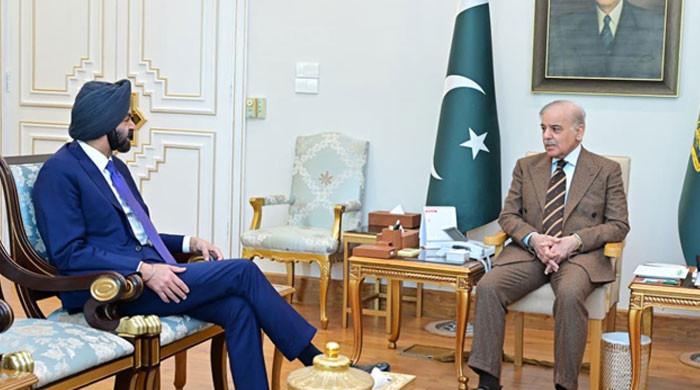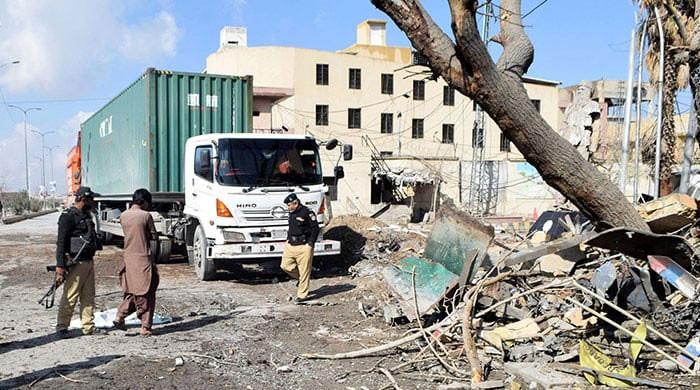ICJ has given no order on 'consular access' for Jadhav: Aziz
If Pakistan abstained from ICJ hearing, same procedural order would have been given, says Pakistan's Foreign Affairs Adviser
May 20, 2017
ISLAMABAD: Pakistan's Adviser to the Prime Minister on Foreign Affairs Sartaj Aziz told journalists on Saturday that it is a wrong and premature perception that India has won against Pakistan at the International Court of Justice on Kulbhushan Jadhav`s case.
He said that the ICJ has given a provisional order calling for the stay on Jadhav`s executions, further adding that Pakistan`s case is strong on merit and jurisdiction of the case.
Aziz said that even if Pakistan had appointed an Ad hoc judge the decision would still have been for the stay on execution.
He said the International Court of Justice (ICJ) has not given any order regarding consular access for Indian spy Kulbhushan Jadhav, adding, the government decided to go in the International Court of Justice after due consultation.
"It was a consensus decision to appoint Khawar Qureshi as our lawyer," he said. "Everyone was satisfied with the arguments of Qureshi. Some are saying that we had 90 mins, why we used only 50 - a substantive argument can be given in only 10 mins."
Aziz said that Jadhav was sentenced according to the laws of Pakistan after he admitted to entering the country on fake passport and involvement in terror activities.
The adviser said that on every death penalty case, the ICJ have given a provisional order.
He added that it was not possible for Pakistan to appoint an Ad hoc judge in five days time.
"Pakistan had only five days to prepare its case," he said.
The International Court of Justice (ICJ) ordered Pakistan to halt the execution of Indian spy Kulbhushan Jadhav until a final decision in the proceedings.
"Pakistan shall take all measures at its disposal to ensure that Jadhav is not executed pending the final decision in these proceedings," ordered Judge Ronny Abraham, president of the court, as he announced the decision.
The ICJ rejected Pakistan's stance and stated that the court had jurisdiction and would hear the case and seek arguments from both parties.
Judge Abraham stated that the ICJ had prima facie jurisdiction under Article 1 of the Optional Protocol to the Vienna Convention. The court further observed that the existence of a 2008 bilateral agreement on consular relations between India and Pakistan does not change its conclusion on the issue of jurisdiction.
“Pakistan shall inform the court of all measures taken in implementation of the present order. The court also decides that, until it has given its final decision, it shall remain seised of the matters which form the subject-matter of this order,” the order stated
Explaining its reasoning, the court began by establishing that based on the initial facts, it has jurisdiction over the case.
According to the judgment, it then turned to the question whether the rights alleged by India are at least plausible and decided in the affirmative.
The court then focused on the issue of the link between the rights claimed and the provisional measures requested and observed that a link exists between the rights claimed by India and the provisional measures being sought.
The court then examined whether there is a risk of irreparable prejudice and urgency. It considered that the mere fact that Jadhav is under a death sentence and might, therefore, be executed is sufficient to demonstrate the existence of a risk of irreparable prejudice to the rights claimed by India. The court further observed that Pakistan has indicated that any execution of Jadhav would probably not take place before August 2017. “This means that there is a risk that an execution could take place at any moment thereafter, before the court has given its final decision,” it stated, adding that Pakistan has [also] not given any assurance that Jadhav will not be executed before the court has rendered its final decision. “In those circumstances, the court is satisfied that there is urgency in the present case,” it stated.
Following the judgment, Foreign Office spokesperson Nafees Zakaria stated that Pakistan had challenged the authority of the ICJ after consulting with all institutions and agencies. "No institution can be party to Pakistan's national security," Zakaria said.
